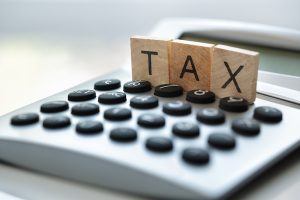Why you need to use a Calgary Real Estate Lawyer?
When purchasing a new property in Calgary , many people don’t seek the assistance of a professional real estate lawyer due to perceptions of increased cost and added transaction complexity. At the same time, real estate agents themselves will often offer to take care of all the legal requirements associated with land title transfers and new property purchases. However, it is important to understand the shortcomings of such services.
If you are buying a new home in Calgary , a real estate lawyer will:
Experienced
Prepare and register all the legal documents for you making sure that there isn’t the slightest error or omission
Timely
Make sure that you are aware of any and all liabilities associated with a property, including all tax, maintenance & development charges, and any and all usage restrictions.
Professional
Run a title search in order to check that there are no covenants, easements or liens registered against a property.

Real Estate Lawyer in Calgary - Knox & Wells LLP
Knox & Wells LLP is a personalized Real Estate Lawyer firm that exceeds expectations in meeting all its client’s legal needs for real estate and business law. Whether clients are first time buyers or have purchased properties in the past, there can always be intricacies surrounding each unique transaction.
Knox & Wells LLP’s legal team facilitates the negotiation and transaction completion process, along with assisting, understanding and calculating tax implications, whether land transfer taxes, property taxes, HST or even income tax. Knox & Wells LLP will complete various title and off title searches, and ensure that their clients have secured the correct property, free and clear of liens and other encumbrances, and ensure that proper insurance for their residential or commercial property has been obtained.
Real Estate Lawyer for You
The lawyers at Knox & Wells LLP work hard to protect their client’s legal rights for all their real estate and business transactions. At Knox & Wells LLP, we have over a decade of experience closing well over 10,000 transactions. We treat each of our clients as we would our family and friends, delivering warm and client focused service in Calgary and GTA. Knox & Wells LLP would be pleased to provide you with a complimentary initial consultation and a no obligation quote for our legal services on any transaction.

Our Real Estate Practice Areas:
 Buying a residential property represents one of the most significant financial transactions which most Canadians will ever enter into.
Buying a residential property represents one of the most significant financial transactions which most Canadians will ever enter into.Thankfully, our residential real estate lawyer can help you save time and money when purchasing a residential building. We will help secure your personal financial interests, minimize the risk associated with any new transaction, and secure your legal rights throughout every step of the purchase process.
 As leading Calgary real estate lawyer, we have extensive knowledge of the commercial Canadian real estate market.
As leading Calgary real estate lawyer, we have extensive knowledge of the commercial Canadian real estate market.Because of this, we can assist you with property acquisitions, dispositions, and developments, as well as everything from cross-border investments to the management and leasing of real estate property all across Canada.
 When it comes to corporate law, you need actionable and accurate advice which can guide your company through every aspect of your next merger or acquisition.
When it comes to corporate law, you need actionable and accurate advice which can guide your company through every aspect of your next merger or acquisition.This being the case, At Knox & Wells LLP, we provide detailed corporate advisory services pertaining to everything from new real estate acquisitions to corporate finance, insolvency, banking, and even your company’s overall partnership structure.
 Personal wills and estates represent one of the most delicate areas of practice law. This being the case, it is fundamental that you plan the dispersal of your estate with lawyers who have a thorough understanding of your personal wishes and interests.
Personal wills and estates represent one of the most delicate areas of practice law. This being the case, it is fundamental that you plan the dispersal of your estate with lawyers who have a thorough understanding of your personal wishes and interests.At Knox & Wells LLP, we, therefore, provide a frank and comfortable environment in which you can discuss your estate execution needs. In like regard, with us, you can rest assured that your will and estate will be attended to as per your exact wishes when and if it ever needs to be.
 In business, real estate transactions represent one of the most significant transactions and investments which your company will ever enter into.
In business, real estate transactions represent one of the most significant transactions and investments which your company will ever enter into.In order to help you close transactions quickly and compliantly, our lawyers will, therefore, assist you through every step of the purchase process. In doing so, we will help you close sales on time, keep your overall costs to a minimum, and make the purchase process itself as easy and stress-free as possible.
 Are you in the midst of a contractual dispute? As leading real estate lawyes in Calgary , we can help you effectively pursue any and all kinds of non-criminal legal disputes.
Are you in the midst of a contractual dispute? As leading real estate lawyes in Calgary , we can help you effectively pursue any and all kinds of non-criminal legal disputes.We will advise you in regard to whether your dispute will be best handled in or out of court. Meanwhile, if someone has raised a dispute against you, we will make sure to defend your rights to the highest possible standard and in doing so, always pursue the most favorable outcome possible.
 When purchasing or selling property, the most important element of the transaction is the transfer of title between buyer and seller. A real estate lawyer will ensure that the seller has a valid title to transfer to the purchaser.
When purchasing or selling property, the most important element of the transaction is the transfer of title between buyer and seller. A real estate lawyer will ensure that the seller has a valid title to transfer to the purchaser.The title confirms that the seller has the legal right to sell the property. More importantly however, the title shows that the property is free from encumbrances such as mortgages, assignments, liens, executions, and notices.
 Because of the ever-changing tax landscape in Canada, it is of paramount importance that your company is always aware of changes to local and provincial tax codes.
Because of the ever-changing tax landscape in Canada, it is of paramount importance that your company is always aware of changes to local and provincial tax codes.Our lawyers, in this case, specialize in providing sound corporate tax advisory services which will assist you in all aspects of business planning and finance. In like regard, we can capably represent your company should you ever be investigated for tax evasion and/or other regulatory offenses.

Client’s Testimonials
I've used Gabriel for several real estate closings over the last 8 years. He is very knowledgeable and I fully trust his expertise; which is why I continue to use his services and am comfortable referring him to others.

Kristina Davis
Very knowledgeable Real Estate lawyer. Very trusted and professional! Gabriel K. will close any problematic deal with no headache to you.



Eradj Khaidarov
Gabriel and his staff are dedicated to their clients. Gabriel has the ability to take a difficult situation and turn it into a walk in park . I have always said Gabriel is the lawyer you want on your side when something doesn’t go to plan. Thanks so much for taking care of my family and me in our Real Estate endeavours.



Jay Frenkel
Excellent turn around time and all around responsive staff. Always a please working with Knox & Wells LLP. They provide an excellent consistent closing service for all of my clients.



Roberto Vita
HIRE Knox & Wells LLP – REAL ESTATE LAWYER


Unexpected Tax Liens & Liabilities
When purchasing building in Calgary , GTA or Calgary , new home buyers and sellers are often eager to close sales as expeditiously as possible. However, rushing to close a sale can often leave new home owners and sellers with unpleasant surprises. These can include unpaid tax liabilities and liens held against properties, transactions where money has changed hands for properties which sellers had no right to sell in the first place, and instances where people selling a home can sued for not disclosing accurate property details.
Real Estate Lawyer Services vs Non-Legal Service Providers
If for example, a practicing real estate lawyer makes an error or an omission when helping you close a sale, they will be obliged to compensate you accordingly. Conversely, a non-legal agent won’t be. Moreover, errors and conflicts arising after the closure of a sale or property title transfer are more common than many people realize.
Lowering the cost of a new Property Purchase


Because a real estate lawyer is acutely aware of all the risks, tax implications and legal challenges associated with purchasing a new property, real estate lawyer can actually help people reduce the overall cost of their next real estate purchase.
Where a real estate lawyer discovers an outstanding tax or lien held against a property, he or she will often persuade selling parties to reduce their asking price accordingly. In like regard, when purchasing a condo, a real estate lawyer will discover and itemize closing cost extras such as development and landscaping charges. Moreover, if these and/or any tax liabilities remain unclear, a real estate lawyer will often request that a seller agrees to cap the overall closing cost so that buyers know exactly where they stand financially.
